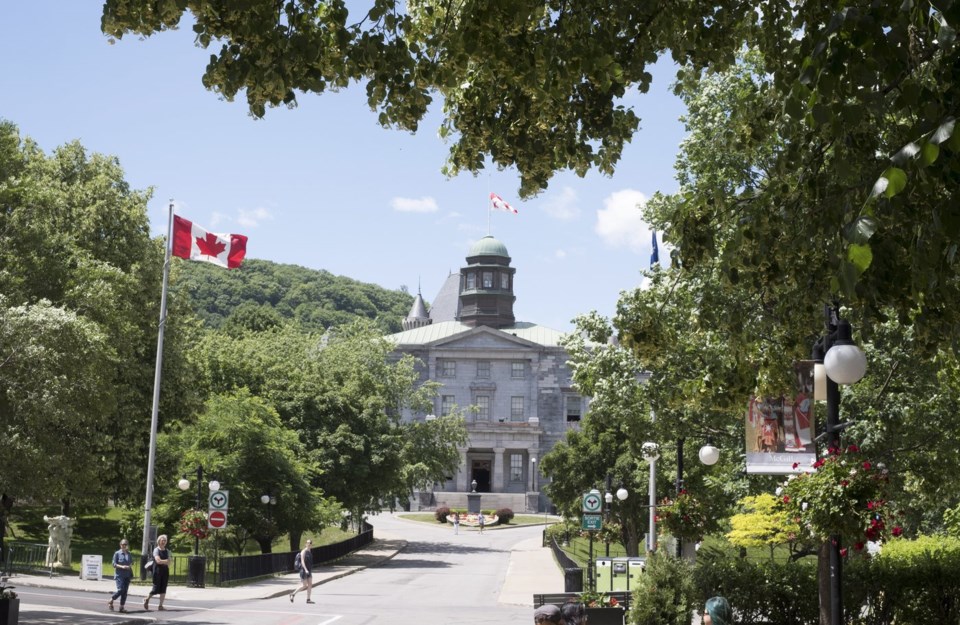MONTREAL — Four major Quebec universities are proposing initiatives to make the province a landing spot for high-level researchers and urged the federal and provincial government to step up at a unique moment to attract talent from around the globe.
"As political and social tensions weaken the global research ecosystem, Quebec and Canada have a unique opportunity to position themselves as havens for rigorous and independent research," the group, calling themselves Polaris, said in a statement released Saturday that highlights a number of moves, including co-ordinated steps at the provincial and national level to attract talent.
The four universities — Université Laval, McGill University, Université de Montréal and Université de Sherbrooke — hope to leverage political and social tensions affecting researchers around the world to lure them to Canadian schools.
The group of universities have put together a series of proposed options and opportunities under the Polaris platform and argue both Quebec and Ottawa have a role to play in making them happen.
Vincent Poitout, vice-rector of research and innovation at Université de Montréal, says there is a window to transform a very unfortunate situation in science, particularly in the United States, into an opportunity for Canada.
"The goal is to reposition Canada as a superpower in research and innovation and to restore its place among the world leaders," Poitout said in an interview.
"Canada must seize the moment, and the moment won't necessarily last very long (...) It's a global competition, so the time to do it is now."
The universities note a recent survey published in the journal Nature that found 75 per cent of researchers in the United States are considering leaving the country.
The Quebec institutions are suggesting the creation of new research chairs in strategic sectors such as artificial intelligence, health and biodiversity. There is also a call to offer targeted scholarships in order to recruit prospective doctoral and post-doctoral students.
In addition, the group is calling for supports for early-career researchers and investment in modernizing research infrastructure.
Dominique Bérubé, vice-president of research and innovation at McGill University, said there has been much discussion in Canada's research community about how best to support American colleagues and maintain collaboration while balancing provincial and national priorities of ensuring sovereignty in research and other domains.
The universities describe their proposals as "well-considered" and "scalable."
"As much as we do recognize that there are a lot of priorities that need to be addressed — and we don't want to diminish in any in any way the many challenges that the governments are facing — nevertheless, all nations across the world are investing massively at this moment in technologies and in science," Bérubé said.
In Canada, which could have claimed some sort of leadership in artificial intelligence or quantum computing, the country risks losing that advantage.
The Polaris proposals also require the help of the federal government to fast track immigration for researchers wanting to come to Canada.
While some proposals target researchers based in the United States, particularly Quebecers and Canadians pursuing careers there, the initiatives aim to attract talent from around the world by "offering them a space for freedom of thought, scientific rigour, innovation, and unparalleled creativity to advance their research."
"We've got great talent in Canada right now, but there's talent everywhere in the world that might have thought about going to the United States and now there needs to be other opportunities, and that's what we want to be able to offer," Bérubé said.
There's no deadline to act, but the government and higher education institutions need to be ready as students and researchers consider their options. The group statement notes European countries have already committed "significant resources" to universities for recruitment.
"I think that in the next year, that's the moment that we need to address the recruitment of researchers," Bérubé said. "And after that, the investments must slowly come."
This report by The Canadian Press was first published June 14, 2025.
Sidhartha Banerjee, The Canadian Press




